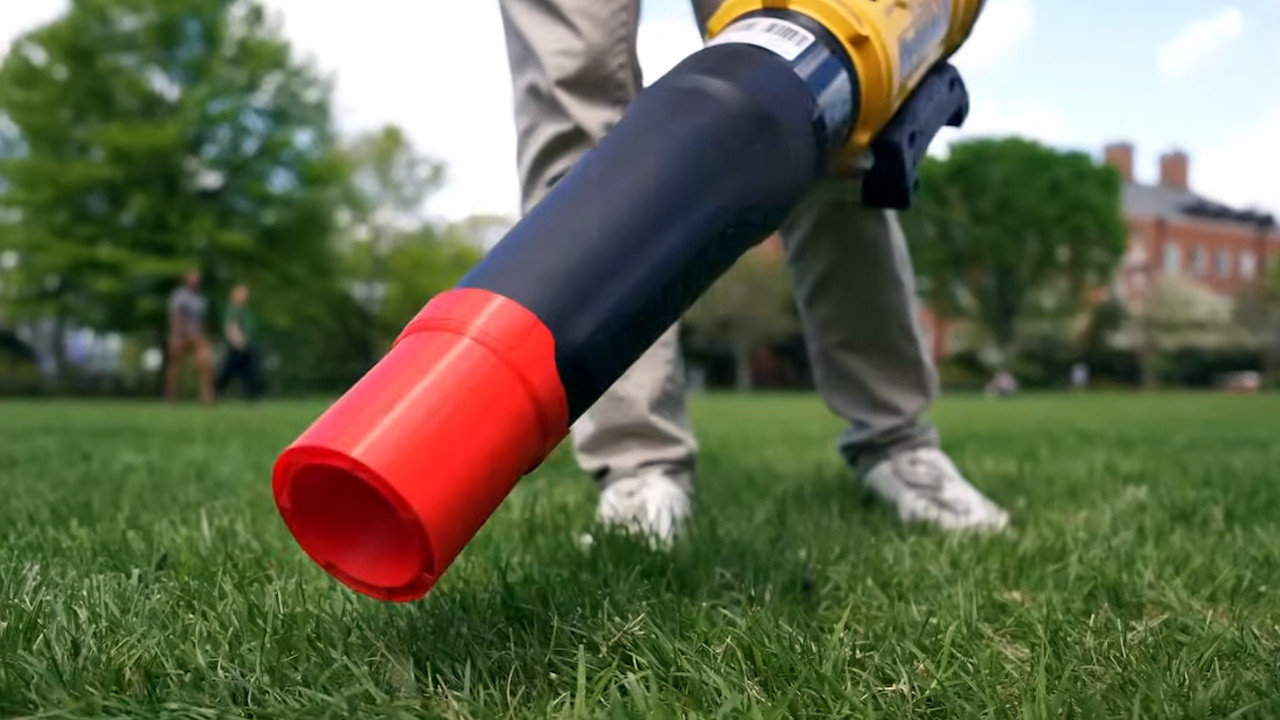was posted 3 days ago in /c/Technology, here :
https://lemmy.world/post/15468260
what they did :“Our product takes in a full blow of air and separates it,” said team member Leen Alfaoury. “Some of that air comes out as it is, and part of it comes out shifted. The combination of these two sections of the air makes the blower less noisy.”
… “It ultimately dampens the sound as it leaves, but it keeps all that force, which is the beauty of it.”
Their design cuts the most shrill and annoying frequencies by about 12 decibels, which all but removes them, making them 94% quieter.
about 12 decibels, which all but removes them, making them 94% quieter.
This “conversion” from decibel to per cent is more than ridiculous.
Well, 93.7% to be more exact. Did you recalculate it yourself the same i did ?
The team reduced the overall leaf blower noise by about two decibels, making the machine sound 37% quieter.
You omitted the most important data, it’s 2db overall, not 12db.
So your own “recalculation” isn’t even in the right ballpark as the correct answer.
Its people that misinterpret the information and perpetuate it like you are doing here that makes these look far better than they actually are.
Your calculation was about energy. But the calculation of energy is next to useless when you are trying to compare two different noises. You need to care about perception.
The perception of noise is quite complicated. But as a rule of thumb: when some noise changes by -10dB, then you hear it about “half as loud”.
Source: I have a university degree in acoustics.
So for the reduction of -12dB here, it will be perceived as “nearly half as loud”. Very different than the “94%” is suggesting.
It’s also only 2db overall, the one frequency they dropped that much.
We agree that the -12dB is what’s important for human hearing … Now, you may agree that the 94% reduction is what counts regarding engineering // fabrication // design.
We agree that the -12dB is what’s important for human hearing … Now, you may agree that the 94% reduction is what counts regarding engineering // fabrication // design.
-2db* and 37%*
Why are you perpetuating the wrong information?
The snippet quoted in the original comments and referenced in subsequent comments refers specifically to the decibel reduction of the frequencies being targeted by the invention, not the volume of the overall sound.
Is it? Because the next sentence in the paragraph (and the only sentence missing in the quote) is the overall sound reduction. Which is far more important and far less misleading than saying 12db and 94% quieter.
Its intentionally misleading to deceive people, and than the general public incorrectly defends it, this is you.
Just saying it doesn’t decrease the power is a bold claim without providing anything technical to support it.
I’ve read multiple articles and videos and yet this very crucial information is intentionally not included.
The claims are false, you can’t suppress or mute something with a tradeoff, unless they have somehow magically figured out physics anomalies. Would love to see some proof of this claim it doesn’t decrease power output.
12dB is literally nothing in reduction when the lawn dudes are blasting 60-100db
Decibel scale is logarithmic, which means 10db change is reducing perceived volume by half.
12 dB is a pretty decent reduction if your goal is hearing protection, 100->88 is also bringing it to something that absolutely needs hearing protection to something that’s borderline acceptable for an 8 hour shift depending on your local laws, mine say 4 hours but still, way more comfortable to use.
The team reduced the overall leaf blower noise by about two decibels, making the machine sound 37% quieter.
It’s an insignificant 2db, I don’t know why buddy didn’t provide the relevant information.
Reading the article, reducing the shriller frequencies by 12db is still pretty nice, looks like it’s designed for electric blowers which are already way quieter than gasoline powered ones, already generally in the hearing safe range. 2db overall should still be noticeable though, be generally less annoying.
Eh, I’ll take it though. I live in a fairly quiet part of town but the street has gotten pretty busy in the last could of years. And visually, I guess the street seems to open up making drivers get… spicy now and then. The fucking motorcycles, man. These noisy fucking middle-aged infants making 130 decibels while only going 15mph make me see red. I’d gladly take the lawn equipment noise.
The team reduced the overall leaf blower noise by about two decibels, making the machine sound 37% quieter.
It’s an insignificant 2db, I don’t know why buddy didn’t provide the relevant information.
Electric is so much quieter. They have them in Singapore
The gardener in my last apartment replaced all of his powertools (mower, blower, trimmer, …) with electric ones powered by an accu-pack he carries on his back. This is an absolute game-changer! I could actually sit outside again and even do stuff for work, when he was there.
Pretty sure when I saw the original post talking about the design, they said the students were only working with electric leaf blowers. So this was designed to make electric leaf blowers even quieter.
This was designed for electric leaf blowers, not gas leaf blowers.
Electric leaf blowers are much much better, but they’re still loud, and that’s what these students were attempting to address.
I still say replace them with rakes.
I get what you’re saying, but leaf blowers are also commonly used for cleaning up extra grass clippings from the roads, etc.
Why do leaf blowers exist in the first place?
So annoying twats can be annoying.
seems like snake oil. whe using my electric leaf blower all the noise sounds to be coming from the big fan at the top of the device and not the nozzle
deleted by creator
For the stupid maybe.
Turns out they number around 70 million in the US…
They do the same thing with vehicle air intakes to eliminate annoying sounds and make the car sound more throaty. Don’t forget about cars that have engine noises come through the stereo. People think they need to “feel the engine” in order to drive. I would rather it be completely silent, not that’s not possible because of tire noise.
Luxury sedans have done a damn good job at shutting out road noise for a long time now, but there are obvious (and less obvious) costs associated with that.
The best invention against leaf blowers so far is the scrapyard.
Somebody tell Kate Blanchett
??
I want the stl!
Good. I fucking hate leaf blowers.
Why isn’t there video of this yet? I didn’t care at all what an article says. Show me the video
There’s a video at the bottom of the article. https://youtu.be/ISgHpUDeLBw
Let me help you with the correct wording: ‘Power to noise’-converters. You’re welcome.
There’s no way this won’t affect the final CFM or Velocity of the air.
This would be no different than running it at a little less than 100% power, but wastes that energy instead.
Why else would they not provide any technical detail, even a wind velocity test would be huge FFS.
They wont release anything because the design is being sold to black&decker, yay
As soon as it’s out to market someone will clone it and have an STL available
it literally doesn’t matter because most people don’t 3D print
Ok?
no.
see my comment above.I’ve read the article attached, the article linked in that, and the video linked as well.
Not one talks about anything technical other than it doesn’t decrease the power, so where’s the stats to prove it? You can’t silence or muffle something without a tradeoff, we ignoring basic physics here?
So what is it do your think your non-informational comment is proving? Theres no test information to support the non power diminishing claim, and I call bullshit from basic physic principles.
Are the majority of people who use leaf blowers regularly really going to buy/use these?! I think the leaf blower droning is almost a relaxing noise to me but those god forsaken commercial mowers are a little annoying









